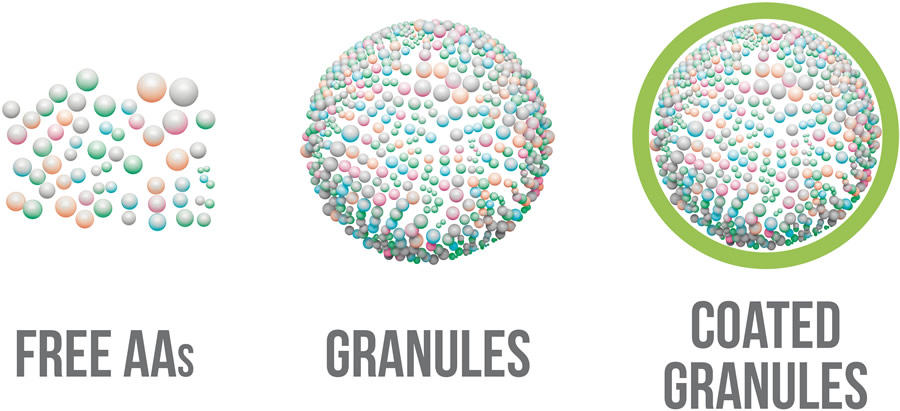PKU Treatments and innovation
Phenylketonuria (PKU) is a rare genetic condition where babies are born unable to break down an amino acid called phenylalanine. If left untreated this can lead to intellectual and developmental disabilities with different but equally impactful consequences in both children and adults with PKU.1
Classic PKU Treatments and diets
Dietary restriction of phenylalanine remains to be the mainstay of treatment for PKU since its introduction in 1953. People with PKU must strictly limit their intake of foods rich in protein, and this dietary treatment must commence in the neonatal period and adhered to for life. Due to the severe restriction of protein intake, PKUers must be supplemented with protein substitutes containing the right mix of amino acids, vitamins, minerals and trace nutrients.1
Even if over the years, developments and advances have been made to improve the PKU dietary treatment, still today there are unmet needs in terms of Compliance and Metabolic management related to the traditional amino acid formulas.
However, there is still room for improvement!3
However, there is still room for improvement!3
How can the PKU treatment be improved?

International experts in PKU agree on a need for a protein substitute, able to offer optimised treatment experience for patients, potentially improving Compliance and Metabolic management.3
Thanks to APR’s patented Physiomimic Technology™ this need is on the way to be fulfilled.3,4
The Physiomimic Technology™ is a pharmaceutical technology that, for the first time, has been applied to a food for special medical purposes for the dietary treatment of PKU.
Physiomimic Technology™ consists of a multi-step process of granulation and coating that leads to the formation of amino acid granules covered in a special coating.
Thanks to APR’s patented Physiomimic Technology™ this need is on the way to be fulfilled.3,4
The Physiomimic Technology™ is a pharmaceutical technology that, for the first time, has been applied to a food for special medical purposes for the dietary treatment of PKU.
Physiomimic Technology™ consists of a multi-step process of granulation and coating that leads to the formation of amino acid granules covered in a special coating.

Thanks to the special coating, granules remain intact during consumption. The result is better palatability, as undesirable organoleptic characteristics of AA, such as smell and taste are masked, and aftertaste is prevented.
The improved palatability increases acceptance and supports compliance to the treatment, therefore, contributing to a better metabolic management.4
Granules begin to dissolve only during digestion in the small intestine. This means that the amino acids within the granules are gradually released and absorbed by the body, in a more physiological way, like natural proteins contained in common food (meat, cheese, dairy etc...).5
The prolonged release (up to 7 hours)4 and more physiological absorption of amino acids allow the body to use them more efficiently for physiological functions. This consequently leads to more regular control of phenylalanine levels6 and fluctuations within the 24 hours, potentially reducing the incidence of behavioural and neurological symptoms such as mood, sleep and emotional disorders.1,6
Physiomimic Technology™ may offer the opportunity for better blood Phe control and therefore improved health outcomes and a more simplified treatment regimen for patients compared to free amino acid supplements4,6,7
References:
- Van Wegberg AMJ, MacDonald A, Ahring K, et al. The complete European guidelines on phenylketonuria: diagnosis and treatment. Orphanet J Rare Dis 2017;12(1):162
- Al Hafid N, Christodoulou J. Phenylketonuria: a review of current and future treatments. Transl Pediatr. 2015;4(4):304-317.
- Daly A, et al. Protein substitutes in PKU; their historical evolution. Nutrients. 2021;13(2):484.
- Scheinin M, et al. Amino acid plasma profiles from a prolonged-release protein substitute for phenylketonuria: a randomised, singledose, four-way crossover trial in healthy volunteers. Nutrients. 2020;12(6):1653.
- Giarratana, Nadia, et al. “A New Phe-Free Protein Substitute Engineered to Allow a Physiological Absorption of Free Amino Acids for Phenylketonuria.” Journal of Inborn Errors of Metabolism and Screening, Jan. 2018,
- MacDonald A, et al. Optimising amino acid absorption: essential to improve nitrogen balance and metabolic control in phenylketonuria. Nutr Res Rev. 2019;32(1):70–8.
- MacDonald A, et al. An observational study evaluating the introduction of a prolonged-release protein substitute to the dietary management of children with phenylketonuria. Nutrients. 2020;12(9):2686.




